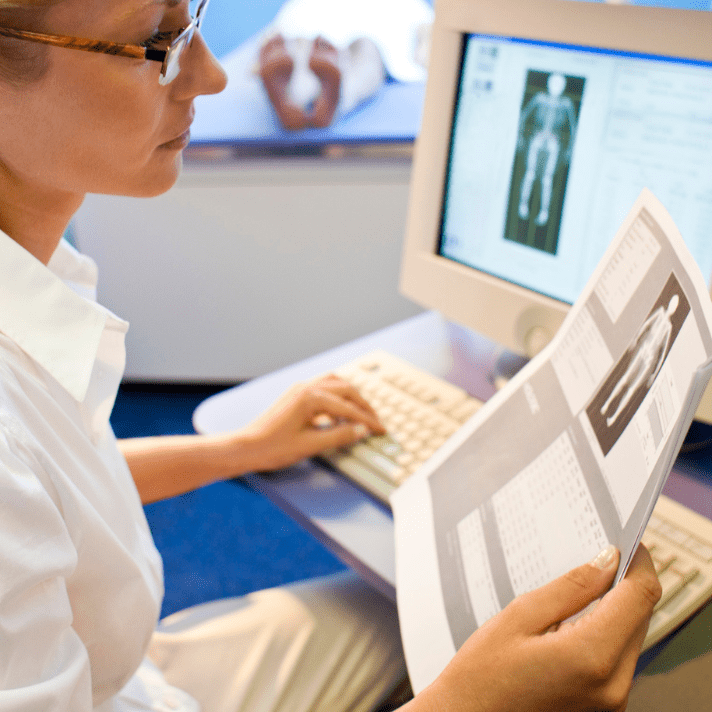
The Facts
Menopause is the time in a woman’s life when her periods stop, and she can no longer have children because her ovaries stop releasing eggs regularly, which means they can no longer be fertilized by sperm. In most cases, menopause starts between 45 and 55 years old.
It’s normal for your body to change as it ages—but that doesn’t mean they’re all fun! Here are some things you should know about perimenopause, menopause, post-menopause, and how to manage all stages effectively:
What is Menopause?
Menopause is a natural part of aging for women. As you age, your body stops making estrogen and progesterone hormones. These hormones are what cause menstrual periods to occur every month. When they stop working, menstrual periods will stop happening. Menopause usually happens between ages 45 and 55 but can happen as early as 40 or as late as 60. I started
It’s important to talk with your doctor if you have concerns about menopause symptoms or other health problems related to menopause.
PERIMENOPAUSE
You may be familiar with the term perimenopause, the period before menopause that can last anywhere from a few years to over a decade, with irregular periods and other changes in your body. But what exactly causes those symptoms? And how do they affect you?
In the early stages of perimenopause, your ovaries will produce less estrogen and progesterone than usual. However, at the same time, your pituitary gland will start making more follicle-stimulating hormone (FSH) and luteinizing hormone (LH). These two hormones trigger egg development in your ovaries every month—but if there aren’t enough eggs left for them to mature into eggs, then you won’t have any more monthly periods! The result: Your menstrual cycle becomes irregular or stops altogether.
POSTMENOPAUSE
Post-menopause is the phase of life after menopause.
- Symptoms may include hot flashes, vaginal dryness, and urinary incontinence.
- Causes may be an imbalance in hormone levels or discomfort due to decreased estrogen production.
- Treatments include hormone replacement therapy, herbal supplements, and lifestyle changes such as exercise or meditation.
WAYS TO MANAGE MENOPAUSE
- Eat a balanced diet
- Exercise regularly
- Quit smoking and avoid nicotine products
- Maintain a healthy weight by eating right and getting regular exercise
- Have regular medical checkups, including breast cancer screenings for women at high risk of developing the disease
THE STUDY
When a study begins, it’s important to understand the results. Studies and research can be complex, but their findings are important for understanding how to manage menopause.
For example, I read a recent study the other day that found the risk of developing osteoporosis decreased by up to 22 percent in those who took vitamin D supplements. It also concluded that taking calcium supplements could reduce this risk by up to 19 percent. I have taken vitamin D for years with vitamin K2, which I discuss in a previous article.
The study makes sense when you consider what we’ve known about osteoporosis in women: bone density naturally declines as estrogen levels drop during menopause, which puts them at greater risk for osteoporosis later on in life if they don’t take steps now to maintain healthy bones.
Vitamin D aids in the absorption of calcium into our bodies; therefore, it makes sense that these two nutrients work together effectively when taken together over time (as opposed to just one or the other).
In addition to reducing your risk of developing osteoporosis-related complications like broken hips and fractured vertebrae later in life, extra doses of these nutrients may also help boost mood and energy levels and improve sleep quality while going through menopause symptoms!
HOW WILL I KNOW IF ITS MENOPAUSE?
You may be experiencing menopause if you have the following symptoms:
- Hot flashes and sweats occur at night, early morning, or even during the day. You might sweat enough to soak through your shirt, but some women don’t sweat. The pain can be so severe that it wakes you up.
- Mood swings—your emotions can change rapidly from happy to sad and back again, which may happen several times a day.
- Sleeping problems—you might sleep more than usual or have trouble staying asleep at night, making your days feel longer!
TRACK YOUR MENSTRUAL CYCLE AND RELATED SYMPTOMS
- A menstrual cycle tracker: You can track all your symptoms, see how they correlate to other factors in your life and get a clear picture of what’s working for you.
- A sleep tracker: If you have trouble sleeping or are suffering from insomnia, this app will help make sure that you’re getting enough rest.
- A food tracker: This app keeps track of the calories and nutrients consumed throughout the day. It also has a barcode scanner, so you can easily log new foods without manually searching them. It’s useful for people with specific diets who need to meet certain daily requirements (e.g., paleo diet).
- Stress/meditation timer: There is no shortage of stress-reduction apps on the market these days; this one aims to help users manage their anxiety levels through breathing exercises and meditation techniques that don’t require an expensive retreat center or membership fees at some fancy spa center (which is excellent).
Now is the best time to focus on you.
Now is the perfect stage of life for you to focus on your self-care, self-love, and self-respect. You are not a machine; your body will show it when you don’t give it what it needs — rest.
Be sure to take some time every week to do something that makes you feel good. Maybe that means taking a bath with candles or bubbles in your tub (don’t forget the wine), perhaps it means going out with friends, maybe it means staying home and bingeing your favorite TV show — but make sure that part of your routine includes doing something positive for yourself each day!
Conclusion
Menopause is a natural part of aging that most women go through. However, it can be an uncomfortable time, and it’s important to know what to expect and how you can manage symptoms. The research shows that if you start taking care of yourself now with lifestyle changes such as eating well, exercising regularly, and managing stress levels, your menopausal years will be much better than they would have been otherwise!
Imagine talking about menopause in the open; it sounds wonderful, right? Start the conversation by sharing your experience with us in the comment box below! But, first, let’s celebrate menopause and our newfound freedom.
BEFORE YOU GO!
Go to our facts page for more insights about menopause!
I would love to hear your thoughts, so feel free to add your comments below ?
Let’s support each other. Use the share buttons so your friends can get help and feel great too!
I am Mary, the founder of The Menopause Sisterhood. I have supported midlife women by sharing hard-earned learnings from her experience. To advance my knowledge, I have put a lot of time and effort into understanding the spectrum of women’s health. I am constantly researching the physical, mental and emotional aspects of menopause. I believe in the life-changing power of healthy, holistic living — this is where I anchor the message to all women. Learn more about my mission on the page, About Mary Santander.


